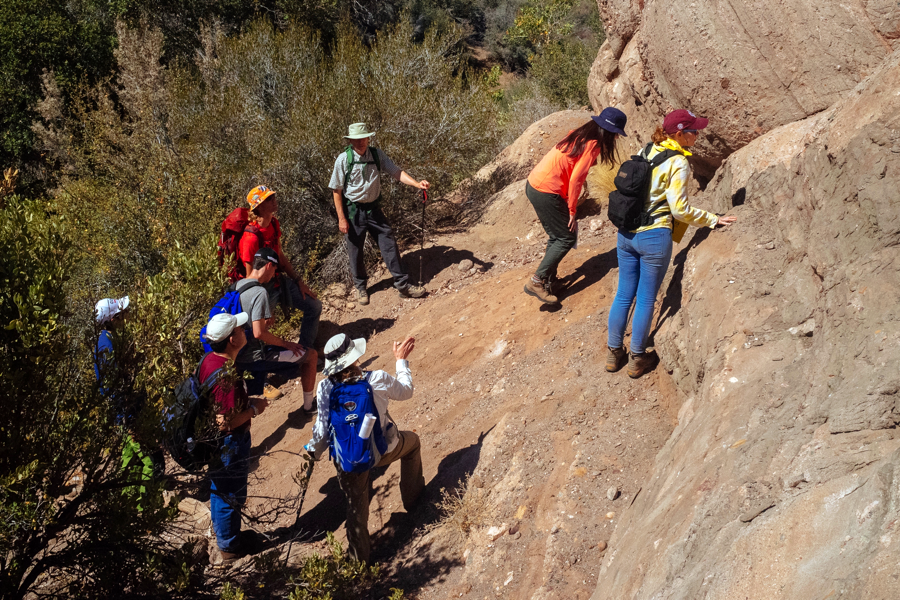All Categories
Featured
Table of Contents
Geophysical Surveys: Definition & Methods in Guildford Oz 2021
This work is increasingly contracted out, so consultancies provide another source of employment. Consultancy companies differ in size, from really little companies to large multinationals. Some consultancies are quite specialised in using specific geophysical methods or operating in specific places, while others use a more diverse series of services to their clients.
The extraction of gas from garbage dump sites is another location of employment and this may grow in the future. Expedition companies might carry out work for construction companies, water business, mining companies and ecological firms, so geophysicists might be used in any of these settings. Other companies consist of: geological surveysgovernment bodies and agenciesuniversities and research institutes.


Jobs may be listed in the oil and gas sector press. Recruitment is impacted by oil rate variations and the level of competitors for positions differs depending on this. Professions Days, which cover the full variety of geoscience careers and are normally participated in by a number of crucial industry employers, are run by The Geological Society.
Bachelor's Degree In Geophysics - Degrees & Programs in Shenton Park Oz 2022
Some of the large oil and gas business provide a full two-year structured training programme throughout the breadth of geophysics, including the chance to experience work in numerous teams before specialising in one area. Your training might include work on: existing wellsmagnetic and gravitational potential field information analysisresearchrock analysis. However, it's more typical for your preliminary training to be provided on the task.

There might be a probationary duration during which you work together with a knowledgeable coworker. Competency-based appraisals take location routinely in many firms. In smaller firms, and for scholastic posts, there is unlikely to be any official training - you'll be expected to begin work straightaway and choose up abilities as you go along.
If you work for a smaller sized business, you might discover that you need to take responsibility for setting up and funding your own development and training. If you have a geology degree, subscription of The Geological Society can be helpful for networking and for maintaining to date with the industry.
What Does A Geophysicist Do? in Ocean Reef Oz 2020
You may likewise find it useful to sign up with the PESGB (The Petroleum Expedition Society of Great Britain, which has a geophysics special interest group. After a probationary period, and when you've acquired some experience, you could advance to senior geophysicist, then team leader and after that into a senior function in management.
The ease of motion between functions depends on the company structure. Research study at Masters or Ph, D level in a subject related to geophysics or geosciences may assist with your profession development and development. The work market within the oil and gas market is really depending on price and this might affect your chances for profession development.
However, not all jobs depend on the oil and gas industries. For knowledgeable geophysicists, freelance consultancy offers a great path for career development. You can likewise specialise in a particular location of geophysics. As a geophysicist, you're most likely to have several jobs throughout your working life. Worldwide movement is crucial for dealing with peaks and troughs in different countries at various times.
Geophysics in Canning Vale Aus 2020
From geophysics, it's possible to focus on seismology (completing further training to become a seismic interpreter) or to move into associated areas such as engineering geology or hazard forecast.
Deciding what to study in college is a difficult option. Even if you know that your field of interest depends on science, what program of research study is ideal for you? If you make the choice to major in physical and biological sciences and pursue a career as a geophysicist, you're preparing for an interesting and rewarding profession.
The first action to attaining your goal of ending up being a geophysicist is earning a degree. Even for entry-level positions in the field of geoscience, you'll require a bachelor's degree (a geophysicist college degree) from a recognized college or university. Some research positions need prospects to hold master's degrees or even Ph.
Geophysicist Job Description, Career As A Geophysicist ... in Wembley Downs WA 2021
Postgraduate degree are particularly essential if you plan to teach at a four-year institution. Geophysicists use physics concepts and techniques to study the gravitational, magnetic, and electric fields of the earth. This furthers scientists' knowledge of both the planet's interior core and its surface. Geophysicists need to have the ability to: analyze rocks, photographs, and other pieces of information perform research both in the field and in labs produce maps and charts of their findings write reports To accomplish all this, trainees require a specialized education for geophysicist professions.
As specified above, you'll require a bachelor's degree in geoscience or a related discipline, such as a physical science or a natural science, to land an entry-level task. Students can also prepare by majoring in subjects like: Biology Chemistry Computer science Engineering Mathematics Physics The above geophysicist majors provide a more generalized approach to a single clinical discipline, but most programs need students to take one or more geology course.
Latest Posts
Geophysicist Job Description in Guildford Aus 2023
Marine Geophysical Surveying - in Maddington Aus 2023
Geophysical Survey - Suffolk Heritage Explorer in Millendon WA 2023